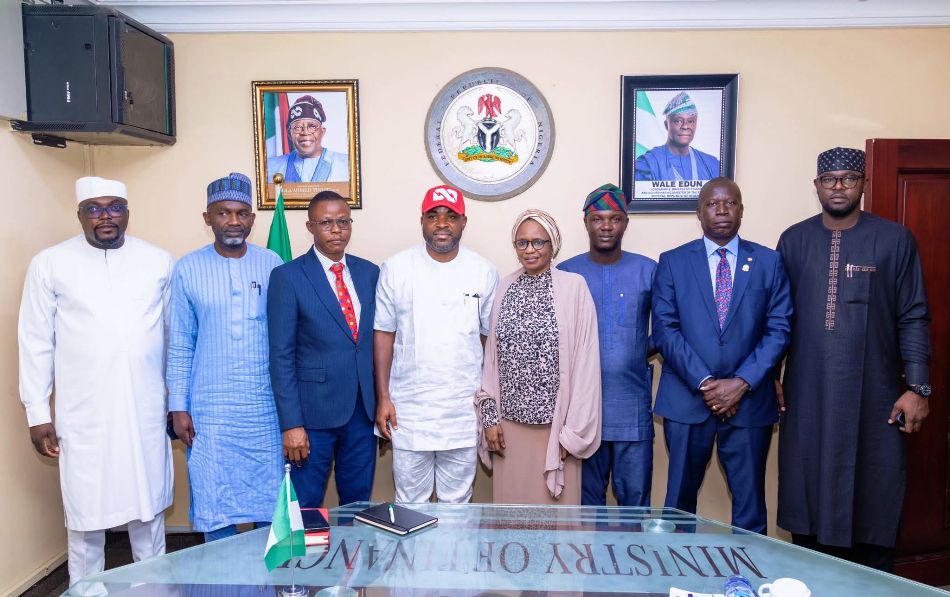In a bold move to streamline revenue collection and enhance transparency in Nigeria’s burgeoning lottery and gaming sector, the Federal Government has launched Project Phoenix, a comprehensive initiative set to transform the industry. The announcement came during a high-stakes inaugural meeting of the Joint Committee for the project’s implementation, held at the Federal Ministry of Finance headquarters in Abuja on Friday, September 27, 2024.
As the sun set over Nigeria’s capital, the atmosphere in the ministry’s conference room was charged with anticipation. Government officials, industry stakeholders, and media representatives gathered to witness the unveiling of what many are calling a watershed moment for the country’s lottery and gaming regulation.
Mr. Wale Edun, the Minister of Finance and Coordinating Minister of the Economy, took center stage to outline the ambitious scope of Project Phoenix. “This initiative will ensure transparent revenue collection in our lottery and gaming sector,” Edun declared, his voice resonating with conviction. “But more than that, it will strengthen regulation, ensure compliance, recover outstanding revenues from operators, and implement advanced monitoring systems to safeguard consumers.”
At the heart of Project Phoenix lies the Revenue Assurance Platform (RAP), a state-of-the-art system designed to revolutionize how gaming revenues are tracked and collected. The platform promises real-time monitoring of transactions, leaving little room for discrepancies or underreporting.
The RAP is not just about increasing government revenue,” explained Dr. Folashade Yemi-Esan, Head of the Civil Service of the Federation. It’s about creating a fair playing field for all operators and ensuring that every naira generated benefits the Nigerian people.
Other key deliverables outlined during the meeting include:
1. Recovery of outstanding revenues from operators
2. Implementation of advanced consumer protection measures
3. Policy recommendations to further improve the sector
Minister Edun emphasized the critical role of Project Phoenix in the broader context of Nigeria’s economic strategy. “Boosting our domestic resources is not just an option; it’s an imperative,” he stated. “The lottery and gaming sector has immense potential to support our economy and social programs. It’s time we harness that potential fully.”
This sentiment was echoed by industry insiders present at the meeting. Chukwuemeka Okonkwo, CEO of a leading gaming company, shared his perspective: “We’ve long advocated for better regulation and transparency. Project Phoenix could be the game-changer we’ve been waiting for.”
While the mood at the launch was optimistic, participants acknowledged the challenges lying ahead. Implementing such a comprehensive system across a diverse and sometimes fragmented industry will require coordination, technical expertise, and unwavering commitment.
“Change is never easy,” admitted Aisha Mohammed, Director of the National Lottery Regulatory Commission. But the benefits far outweigh the temporary discomfort. We’re looking at increased revenue, better consumer protection, and a more professional industry overall.”
Minister Edun stressed the importance of collaboration in achieving Project Phoenix’s ambitious goals. The Joint Committee, comprising representatives from various government agencies and industry stakeholders, will be tasked with overseeing the initiative’s implementation.
“This is not a top-down approach,” Edun clarified. “We need the insights and cooperation of everyone in this room to make Project Phoenix soar. The government stands ready to provide all necessary support to achieve our collective goals.
As the inaugural meeting drew to a close, there was a palpable sense of purpose among attendees. Project Phoenix represents more than just a revenue collection initiative; it’s a comprehensive overhaul of how Nigeria approaches its lottery and gaming sector.
The coming months will be crucial as the Joint Committee begins the hard work of turning plans into reality. From implementing the RAP to recovering outstanding revenues and crafting new policies, the road ahead is both challenging and full of potential.
For ordinary Nigerians, Project Phoenix holds the promise of a more transparent, fair, and beneficial gaming industry. As one attendee put it, “If we get this right, everyone wins – the government, the operators, and most importantly, the Nigerian people.
As night fell over Abuja, the lights in the Ministry of Finance burned late. Project Phoenix may have just been launched, but its journey to transform Nigeria’s lottery and gaming landscape has only just begun.




